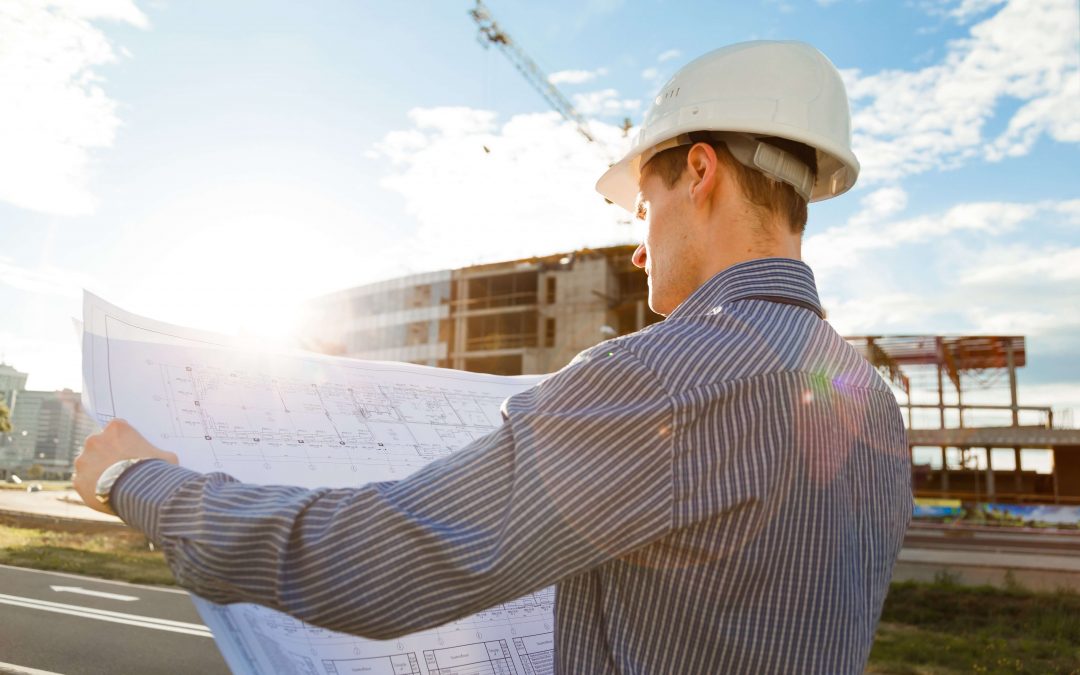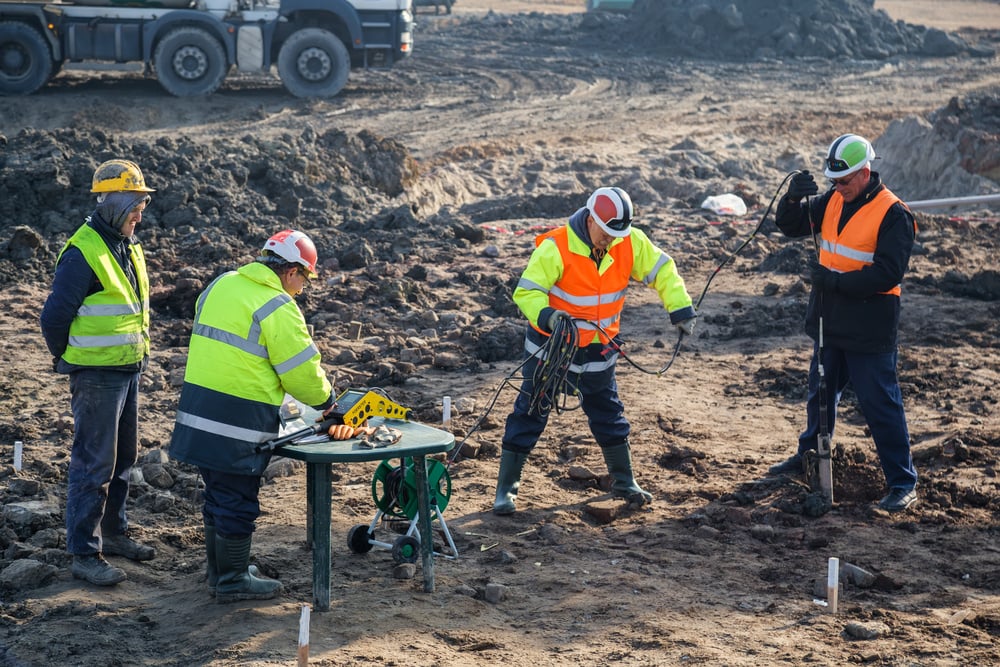Geotechnical Engineering For Construction Projects Things To Know Before You Get This
A Biased View of Geotechnical Engineering For Construction Projects
Table of ContentsGeotechnical Engineering For Construction Projects - QuestionsThe Definitive Guide to Geotechnical Engineering For Construction ProjectsFacts About Geotechnical Engineering For Construction Projects RevealedThe smart Trick of Geotechnical Engineering For Construction Projects That Nobody is Talking AboutThe Facts About Geotechnical Engineering For Construction Projects RevealedGeotechnical Engineering For Construction Projects Things To Know Before You BuyGeotechnical Engineering For Construction Projects - Questions
"A report could be 25 years old, so the concern is: Has there been a building on that particular website given that they've done the report? What is around the website now that had not been there back after that?" said Cheryl - Geotechnical Engineering for Construction Projects. "So, that is where I begin." Even when it comes to a reconstruct, a geotechnical report performed ten years before is likely as well old. Both Cheryl and Joseph shared instances of red flags and failings connected to geotechnical issues. Cheryl noted that, throughout building and construction of the LRT passage in Ottawa (not a job she was included with), a massive sinkhole opened up on Rideau Street, likely from the instability of wet, sandy soil in the area.
Geotechnical Engineering For Construction Projects Fundamentals Explained
"They were unable to control the groundwater and it started seeping right into the structure wall surfaces throughout the course of construction," claimed Joseph. He included that, when home builders and developers prepare to use an unusual or uncommon construction method, this can be a red flag on a geotechnical record - Geotechnical Engineering for Construction Projects. With any kind of geotechnical report, Joseph stressed: "It's very crucial for developers and professionals to take another look at and abide by the referrals."Loss control experts are important partners that can assist designers comprehend the significance of a geotechnical record and take actions to complete them
Geotechnical engineering is a branch of civil design; nonetheless, it involves making use of scientific methods and concepts to gather and interpret the physical buildings of the ground. Geotechnical engineers are involved in all phases of the design of frameworks, from concept to construction. Their job is vital in the design and preparation procedure as they evaluate the stability of dirt, clay, silt, sand, and rock, prior to building and construction beginning.
Geotechnical Engineering For Construction Projects - The Facts

On the planet of construction and civil engineering, geotechnical engineering is a foundation self-control that ensures the safety, durability, and sustainability of any kind of task. Without a strong understanding of the dirt, rock, and various other earth products at a website, building reliable framework would be almost impossible. At STS Geotechnics we strongly think in the relevance of conveying the essential duty the Geotechnical Design plays in contemporary construction, site development, and ecological stewardship.
Geotechnical designers analyse dirt, rock, groundwater, and various other subsurface problems to examine their suitability for building and construction. This know-how enables them to anticipate how these products will respond to structures like buildings, roads, dams, and bridges, aiding make certain risk-free and steady foundations. Every structure or facilities task depends on a structure that is safe and steady.
Geotechnical engineering aids stop various ecological threats that can jeopardize both individuals and the environment. With dirt analysis, designers can identify possible problems like landslides, soil liquefaction, and disintegration risks.
Things about Geotechnical Engineering For Construction Projects
As an example, designers may create jobs that lower the demand for too much excavation or decrease land disruption, adding to the conservation of all-natural environments and reducing the carbon impact of construction jobs. Proper geotechnical examination can dramatically minimize building costs by identifying potential issues before construction starts. Recognizing the subsurface problems assists read in choosing the very best structure type and other architectural components, therefore avoiding pricey redesigns and repair services.
They evaluate natural calamity dangers like earthquakes, flooding, or typhoons and help create frameworks that are prepared for these occasions. This durability is especially vital as climate modification visit this site right here leads to much more constant and serious climate events.: Making certain a stable structure is crucial for any type of structure. Geotechnical designers analyse soil and rock problems to recommend the most effective foundation layout for security and durability.
The basic determines that geotechnical website investigations adhere to a repetitive procedure (illustrated below) in which the results of the investigation are reviewed against the objective for which the investigation is being performed with additional investigations prepared as called for. Put simply, ground make-up and condition can vary significantly even within a tiny site.
Tasks that disregard this crucial solution risk their advancement cracking, leaning, sinking, slipping and possibly falling down as the earth below it changes. Experience dictates that a Geotechnical Engineer must be generated throughout the initial planning phases of any kind of construction project. Only after that can their skills, competence and referrals be made use of to stop building and construction problems before they happen.
Geotechnical Engineering For Construction Projects Fundamentals Explained
On the planet of building, every structure stands on a structure and that foundation is constructed on the know-how of geotechnical engineering. Typically hidden however undoubtedly important, geotechnical engineering plays a crucial function in making sure the stability, safety, and long life of structures. From high-rises to bridges, roadways to dams, the value of geotechnical design can not be overemphasized.

Getting The Geotechnical Engineering For Construction Projects To Work
Slope stability and Planet retention: In sloping or sloped terrain, maintaining incline stability is vital to prevent landslides, disintegration, and dirt activity. Geotechnical engineers examine Web Site the security of inclines and design planet retention systems such as keeping walls or slope stabilization actions to mitigate risks and ensure safety and security. Ground renovation methods: In some situations, the dirt conditions at a building site may disagree for developing without previous therapy.
Prior to setting up pipes, tunnels, or below ground facilities, geotechnical designers review soil problems and groundwater degrees to guarantee proper positioning and stop prospective risks such as soil settlement or pipe damages. Building material option: Dirt homes influence the option of building and construction materials and strategies. Geotechnical engineers examine soil features to identify the suitability of materials for foundations, embankments, and earthworks.
The Greatest Guide To Geotechnical Engineering For Construction Projects
By carrying out proactive maintenance procedures, designers lengthen the lifespan of frameworks and protect versus unpredicted concerns. Finally, the value of geotechnical engineering in construction tasks can not be overstated. From making certain the stability of foundations to handling environmental risks, geotechnical designers play a critical role in every stage of the construction process.